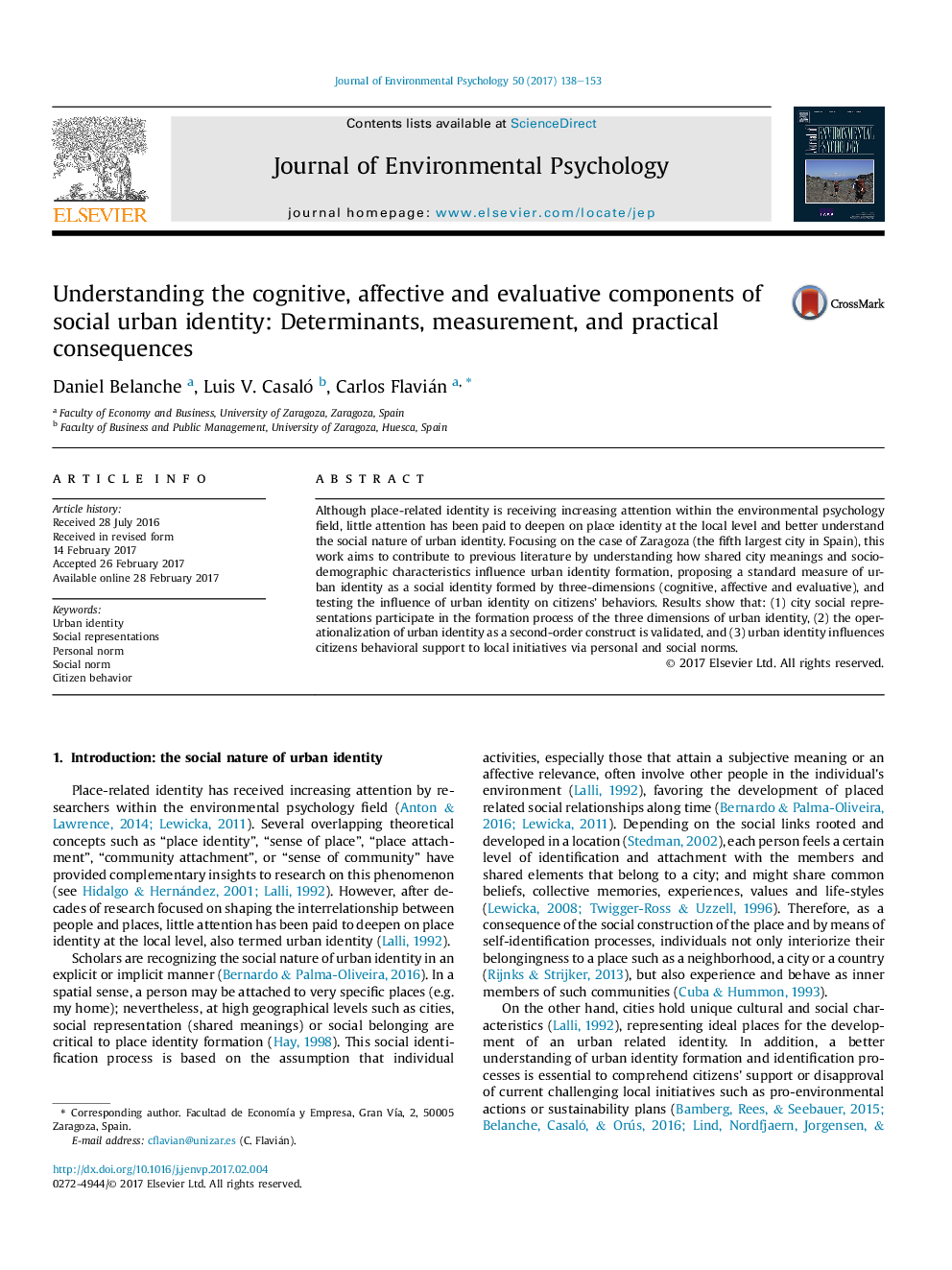| کد مقاله | کد نشریه | سال انتشار | مقاله انگلیسی | نسخه تمام متن |
|---|---|---|---|---|
| 5034929 | 1471744 | 2017 | 16 صفحه PDF | دانلود رایگان |
- Urban identity is measured as a social identity using a second-order construct.
- Urban identity is formed by cognitive, affective and evaluative components.
- Social representations of the city and socio-demographics influence urban identity.
- Urban identity affects citizen's behavioral support for local initiatives.
- This influence is mediated by both personal and social norms.
Although place-related identity is receiving increasing attention within the environmental psychology field, little attention has been paid to deepen on place identity at the local level and better understand the social nature of urban identity. Focusing on the case of Zaragoza (the fifth largest city in Spain), this work aims to contribute to previous literature by understanding how shared city meanings and socio-demographic characteristics influence urban identity formation, proposing a standard measure of urban identity as a social identity formed by three-dimensions (cognitive, affective and evaluative), and testing the influence of urban identity on citizens' behaviors. Results show that: (1) city social representations participate in the formation process of the three dimensions of urban identity, (2) the operationalization of urban identity as a second-order construct is validated, and (3) urban identity influences citizens behavioral support to local initiatives via personal and social norms.
Journal: Journal of Environmental Psychology - Volume 50, June 2017, Pages 138-153
